
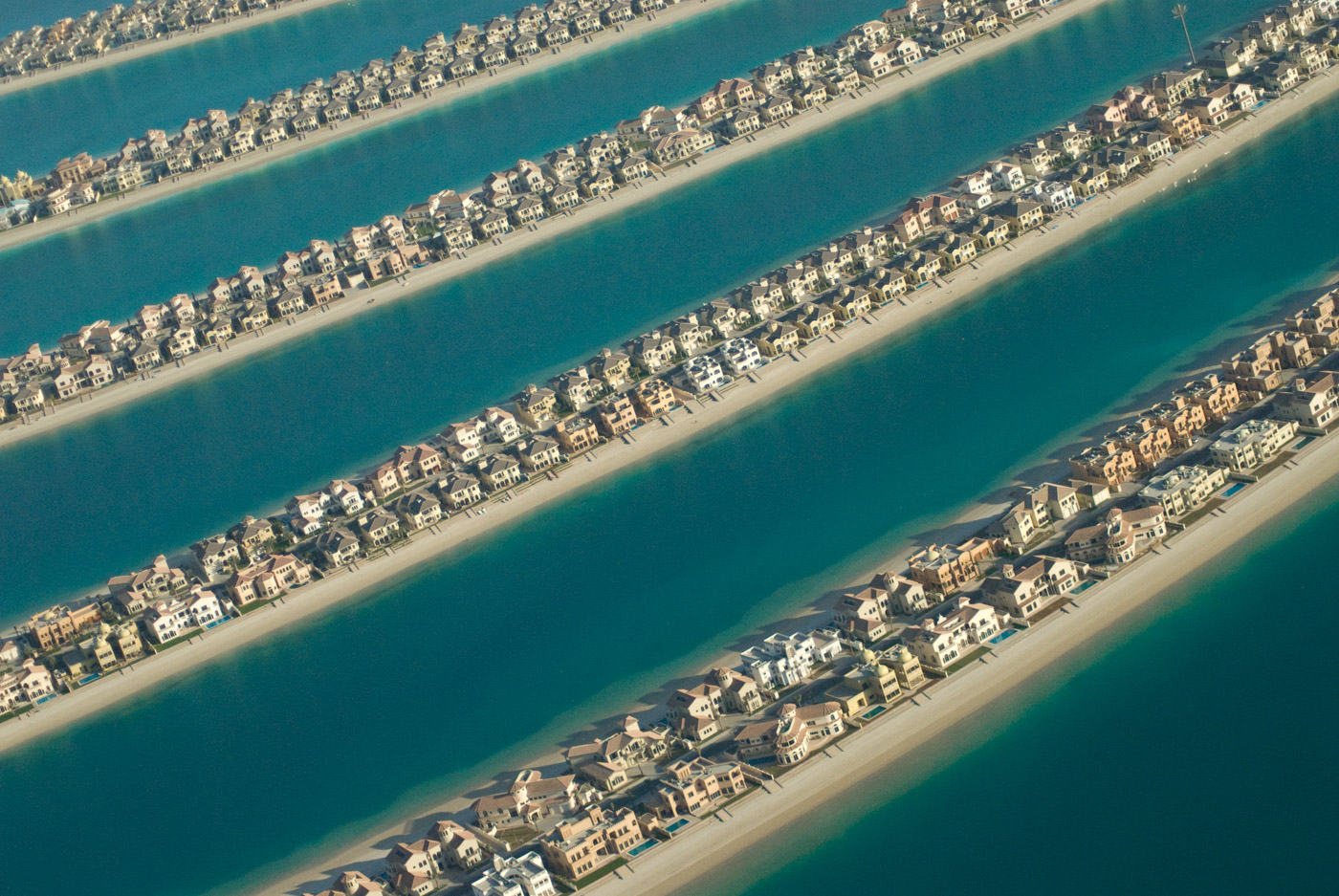
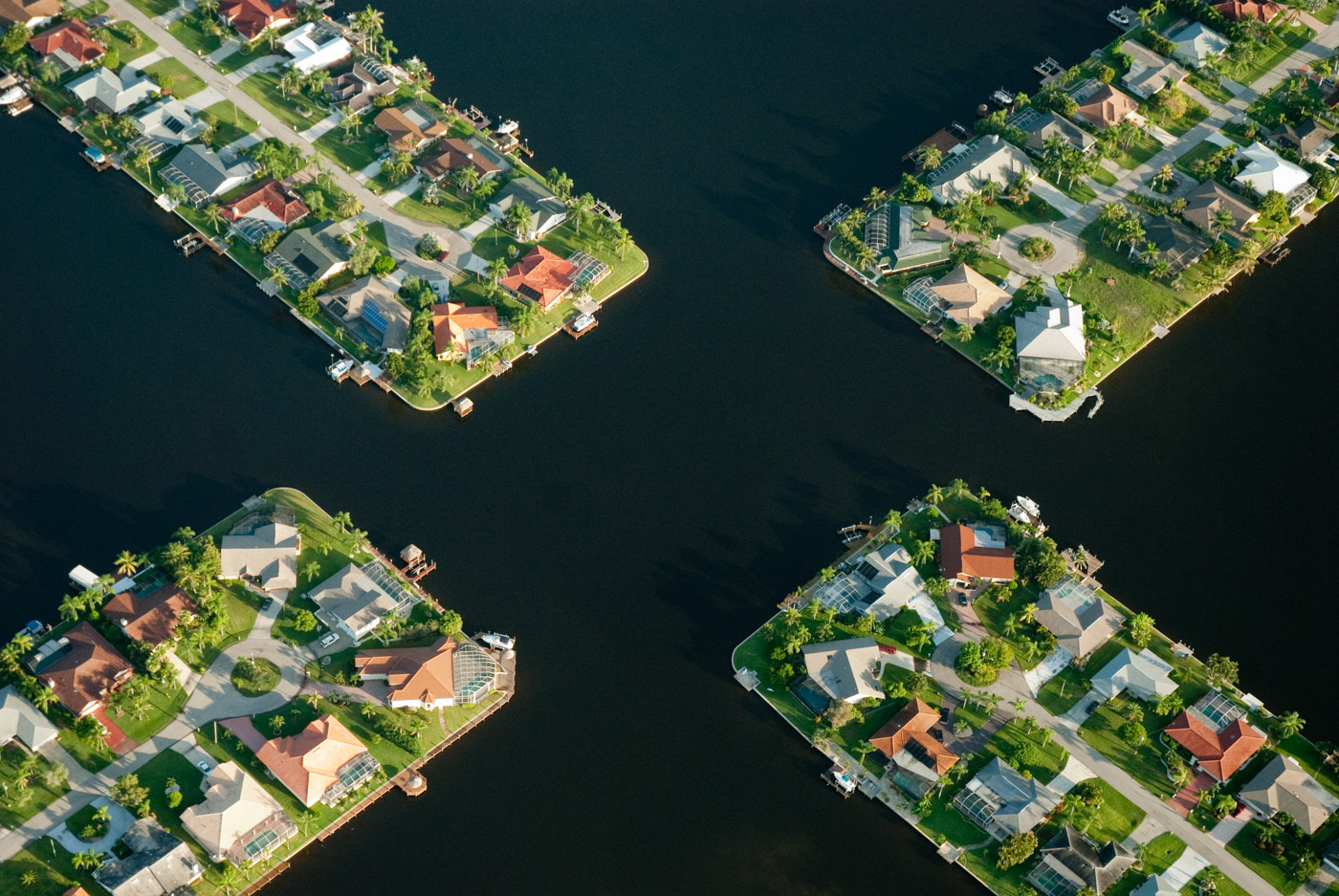
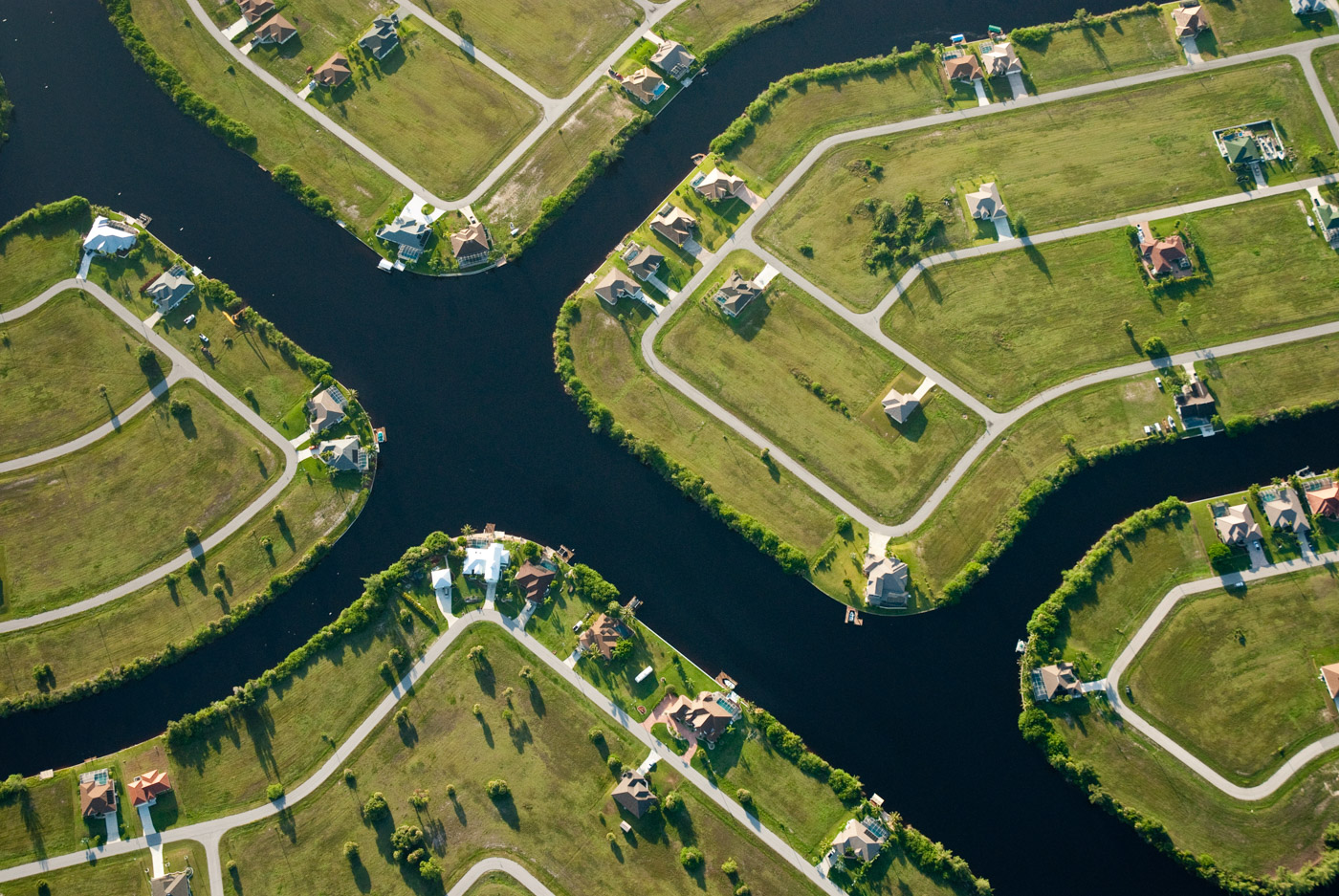
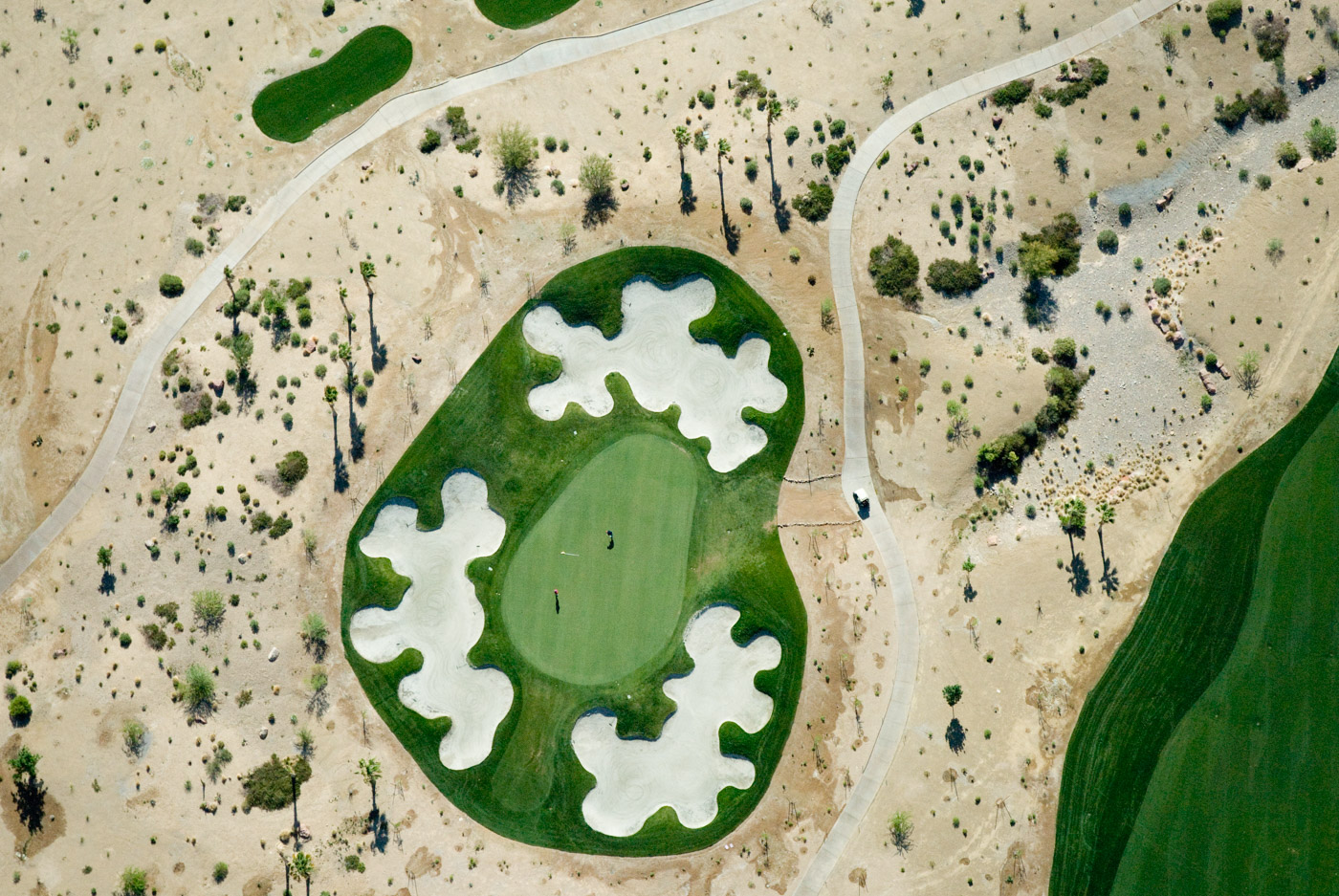
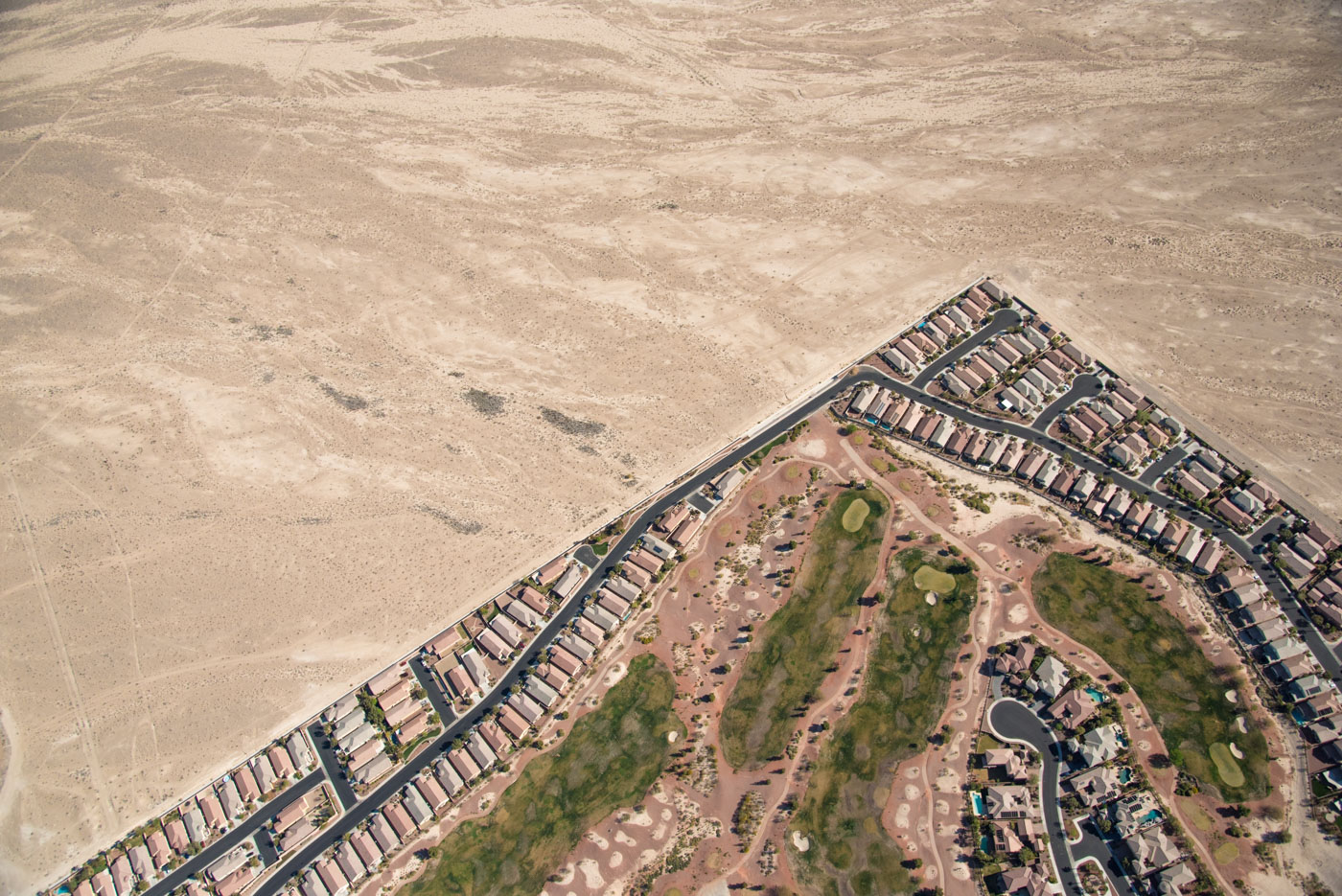

Artist's Statement
Alexander Heilner
For 25 years Alexander Heilner has been photographing the interaction between natural and human-built elements in our surroundings. This obsession has often focused on the structural, and the inadvertently aesthetic aspects of these entanglements, including aerial imagery of mineral mines, railroads, housing developments, and other large-scale human infrastructure.
But in recent years, some of the most compelling “new” landscapes have been explicitly defined by the economics of their development. These places are not discovered, claimed, nor even cultivated as in centuries past. They are now designed, with bold and deliberate physical attributes, whose aesthetics are driven by a desire to appeal to a customer – the homeowner or investor who will buy the newly developed land.
This phenomenon has been pushed to its most dramatic extremes in places where land was previously empty, and the cost of physical space was minimal. Cape Coral, Florida began as a family-owned development project in the 1950s, and has now grown into the largest network of artificial canals in the world – almost entirely for the benefit of upper-middle-class single-family residential properties. More recently, the developers of Las Vegas and its surroundings have gone to extreme measures to sculpt and irrigate the desert, to support a population that would not be sustainable without this elaborate infrastructure. In the United Arab Emirates, the developer-rulers of Dubai have spent the last two decades building new land forms offshore, in the shapes of palm fronds, and even a depiction of “The World” – allowing wealthy investors to purchase their own small pieces of these designer landscapes.


